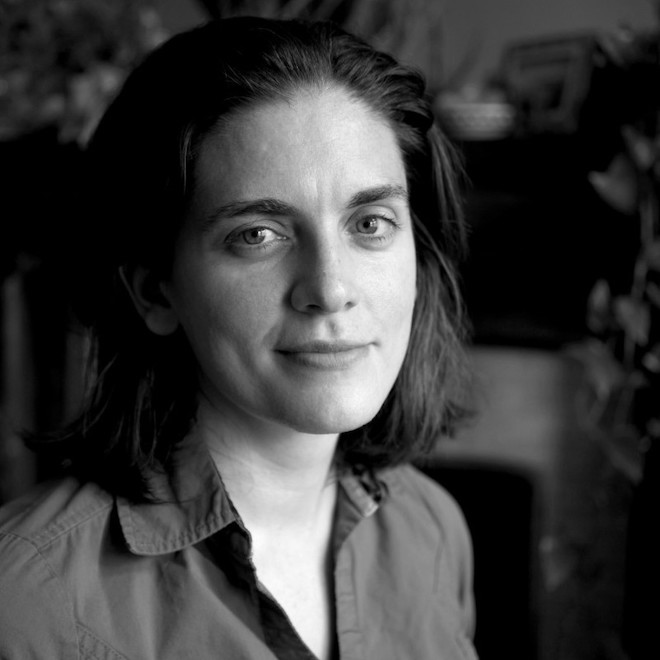The Changemaker Authors Cohort, a partnership with the Unicorn Authors Club, is a new, yearlong intensive coaching program supporting full-time movement activists and social justice practitioners to complete books that create deep, durable narrative change, restructuring the way people feel, think, and respond to the world. This interview series features participants in the inaugural cohort.
Jess Clarke is a genderqueer writer, performer, and organizer from Oakland, California. They’ve been on the frontlines and in the back offices of justice struggles for the last half-century. From organizing a cultural center in San Francisco’s Tenderloin in the 1980’s, doing solidarity with the Zapatistas in the 90s, editing Race, Poverty & the Environment in the 2000s, to launching Radio Reimagine in the 2020s, liberation of all kinds —personal, social, economic and political—is the common goal of their projects. Jess has been a featured performer at the Oakland Museum, Oakland Public Library, Marsh Theater SF & Berkeley, Story Slam Oakland and Berkeley Repertory School of Theater.
Narrative Initiative: Tell us about yourself. Who are you?
Jess Clarke: I’m a writer, a political activist and social justice activist since my teen years. I was born in the mid 50s. So I grew up in the midst of the civil rights movement, the anti-war movement, and the early feminist movement. I was raised as an Irish, Roman Catholic by leftist parents who were in the Berrigan wing of the pacifist movement and who were civil rights activists in the 50s. They were engaged with Dorothy Day’s Catholic Worker, which despite its radicalism was socially conservative and obedient to the pope.
When the Summer of Love hit the Vatican II crowd, they went kind of crazy. So my parents got divorced and my life was split into two different kind of worlds.
In my late teens and early 20s, I discovered liberation theology. I jumped in wholeheartedly, following Paulo Freire, who was a South American educator who taught literacy in campesino settings to build community and empower peasant and urban poor communities to understand their social conditions.
Narrative Initiative: You have been involved with movements for a long time. What sustains your activism? What kind of world are you working towards?
Jess Clarke: I learned it’s okay to be in resistance. A lot of people I have worked with in the past 40 years as political activists become easily discouraged when they find out that there’s a bunch of fascist, white, redneck, misogynistic, patriarchal people who live in this country. That’s the USA. It’s always been the USA, so don’t sweat it.
Look at the political social circumstances around you. Don’t worry about the people and politicians who are lying to you today, because they’re going to be lying to you tomorrow. They were lying yesterday. They lied all through the 20th century, and they’ve lied all through the 21st century.
What has sustained me is starting in our own affinity networks and political contexts and looking at the social circumstances we’re actually in and making a clear judgment about who’s actually transforming the conditions that we’re in. Don’t let winning confuse you. Winning isn’t what this is about.
It’s the simple act of doing the right thing. It’s about engaging and becoming fully human.
Okay, so if you find yourself in conditions of oppression, if you’re socially marginalized as a queer, if you’re excluded from political or economic opportunity because of racism, and you’re living that oppression, that’s where you are. Now, what you want is to be liberated from that oppression. But it might not mean that you’re going to gain political power, own a mansion, and live in luxury.
It means that you’re going to live in integrity with the community of people that you love. And you’re going to transform the lived experience, whether that’s material, social, or spiritual—wherever it is where you actually engage in where you live
I think the resistance that we showed in the 20th century, where we focused on liberating ourselves in our communities, is a good model. So that’s what I’m trying to write about.
Narrative Initiative: What is your project for the Changemaker Authors Cohort?
Jess Clarke: My memoir follows a nonbinary Irish-Catholic kid through the permutations of my identities through the decades. We start in the 60s, when I’m brutalized by a predatory Cub Scoutmaster and his troops. This sends me into an inner world where dreams and books are my sustenance. At home, Catholic religiosity leaves little room for the androgynous sexual identity simmering inside. But at the same time it also provides a spiritual framework where sainthood is an avenue to a state beyond gender.
After my parents’ divorce, Dad remarries a hot blond with her own 5 kids and drags the now 13-member family to the sticks of KKK Maryland. Across the continent Mom has joined a back-to-the-land commune where I spend a summer looking for love.
Puberty raises the question: get the girl or be the girl?
This question reaches new heights when I go to Columbia which in the 70s is an all-male college. Alienated by Boy Scout-like culture, I drop out, drop LSD, and set course to deconstruct the core elements of my identity. This culminates with a six week stint in a psych ward where I split into the Girl, the Boy and the Saint.
Released back into the world, we return to college. Our plural selves pursue our passions with women, politics, and social movements. We dive into fighting Henry Kissinger’s appointment to teach at the University, stopping apartheid through divestment, occupying abandoned buildings to create housing… striving to create a world where liberation is possible.
Narrative Initiative: In recent years, we’ve seen more writing, including memoirs and novels, published by trans and nonbinary writers. How do you envision your book expanding public conversations on gender, sexuality, faith, and community?
Jess Clarke: I’ve always had an ambiguous gender identity since I was a child. Now today when we see homophobic, transphobic legislation, we can see there’s a deep misogynistic fear of the feminine and a need for control. Militarism and patriarchy really thrive on eradicating autonomy and personal development.
I knew right away that masculine violence was my antagonist in life. I learned how to live and love being in a minority and not requiring “majority” support.
A very core part of moving toward liberation is caring for people and letting them become… It’s a personal practice. For me, it involved recognizing my own trauma. Being traumatized is a dimension of oppression, being sexually used by someone for their purpose when you’re a child, that creates continuing harm across decades, centuries, and passes from generation to generation. So breaking that intergenerational cycle of the inability to care for one’s own family members is part of the liberation and justice that we need to foster if we’re going to resist.
Narrative Initiative: Why are you writing this memoir now?
Jess Clarke: I think that the religious right has effectively obliterated the idea of the divine as a positive social force.
We shouldn’t give up on the concept that there is a way that we’re connected to the universe that’s universal and spiritual and can foster human liberation. Including how to express gender and how to be fully human without being constrained by the limitations of gender roles.
Human resilience is the capacity to create community that’s healing and transformative. It’s a hopeful thing that I think is always good to have. So I want to tell that story, not just in a book. I’ve been doing a podcast and I’m telling some of these stories on stage in theaters or in recorded versions. (http://www.radioreimagine.com).
Narrative Initiative: I’m wondering, what you want people to leave with when they read about your life and your ruminations. What are what are the narratives you’re trying to like advance?
Jess Clarke: I had the good fortune to be brought up in a utopian tradition, so the feasibility of the outcome wasn’t a measure of worth. The beauty of the outcome was the measure of worth. Reducing your imagination to the feasible is death. So don’t worry about feasibility because everything we do that is beautiful is improbable. Life itself is improbable in the universe. Creating life is improbable. Our being human beings is improbable. This is a million-to-one that we even exist.
Most of the instances where the movement of which I was a participant ended up having a noticeable social impact usually started with two or three people. Strategically, we weren’t always the best informed, but we were clear that we were going to intervene. There are ebbs and flows. This was true with the divestment movement we started in NYC in 1977. We got it up and running. The University dumped some bank stocks. We graduated. They shut the movement up for another five years, but we came back the second time in the 80s. In 1990, I saw Mandela speaking at the Oakland Coliseum. And he was out. Soon, apartheid was officially ended. A goal we could barely imagine. I say, if you go ahead and jump in, you are going to make some great friends. Work with people you love and get ready for some fun adventures.
So we need that elixir of kindness. We need some methodology for sharing love and building cross-boundary communities, interracial communities, cross- class communities that are capable of challenging systemic oppression and generating deep, long resistance, generation after generation. It’s not a four year problem. We know the climate crisis is going to go on for 50 or 100 years. So we have another whole generation of people that are going to be dealing with that. We know that slavery in the United States has not truly ended, that the hundreds of years of history racial oppression will go on. We need to be building that resilient capacity to fight with a community that is actually holistic, not totalitarian. We need to move toward in a place where we are able to embrace the entirety, true intersectionalism. So to me, it’s the project of liberation, political, social, gender, economic liberation… human liberation!

Nadia Awad is an interdisciplinary artist and writer, whose work focuses on narrative and justice.
For over fifteen years, she has produced media on the lives of LGBT, HIV-affected, and MENA communities. She contributed 20 oral histories, many with Muslim and Arabic-speaking narrators, for the New York Trans Oral History Project, and created photographs and videos on trans athletes, HIV criminalization, and healthcare access for Lambda Legal. Nadia has written about film, memory, and power for The New Inquiry, The Journal of Palestine Studies, and Camera Obscura. Two forthcoming scholarly works, Terrorism in American Memory and a study on Middle Eastern asylum seekers, will feature her art.
originally published at Narrative Initiative

Network Weaver is dedicated to offering free content to all – in support of equity, justice and transformation for all.
We appreciate your support!



